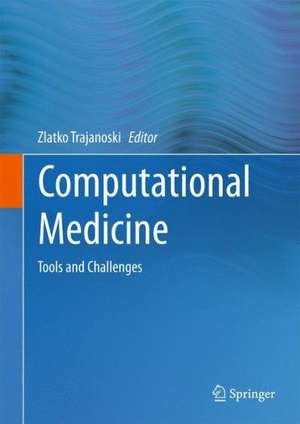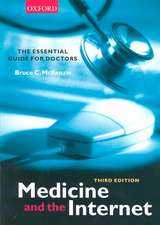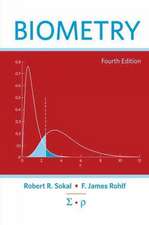Computational Medicine: Tools and Challenges
Editat de Zlatko Trajanoskien Limba Engleză Hardback – 18 sep 2012
| Toate formatele și edițiile | Preț | Express |
|---|---|---|
| Paperback (1) | 1091.77 lei 39-44 zile | |
| SPRINGER VIENNA – 22 aug 2016 | 1091.77 lei 39-44 zile | |
| Hardback (1) | 1295.24 lei 6-8 săpt. | |
| SPRINGER VIENNA – 18 sep 2012 | 1295.24 lei 6-8 săpt. |
Preț: 1295.24 lei
Preț vechi: 1363.40 lei
-5% Nou
Puncte Express: 1943
Preț estimativ în valută:
247.84€ • 258.26$ • 205.21£
247.84€ • 258.26$ • 205.21£
Carte tipărită la comandă
Livrare economică 03-17 aprilie
Preluare comenzi: 021 569.72.76
Specificații
ISBN-13: 9783709109465
ISBN-10: 3709109469
Pagini: 216
Ilustrații: IX, 203 p.
Dimensiuni: 178 x 254 x 17 mm
Greutate: 0.71 kg
Ediția:2012
Editura: SPRINGER VIENNA
Colecția Springer
Locul publicării:Vienna, Austria
ISBN-10: 3709109469
Pagini: 216
Ilustrații: IX, 203 p.
Dimensiuni: 178 x 254 x 17 mm
Greutate: 0.71 kg
Ediția:2012
Editura: SPRINGER VIENNA
Colecția Springer
Locul publicării:Vienna, Austria
Public țintă
ResearchCuprins
1. Bioinformatics tools for the search of disease-associated variations. Stefan Coassin, Anita Kloss-Brandstätter, Florian Kronenberg.- 2. Cloud computing: bringing computational power to medical genetics. Lukas Forer, Sebastian Schönherr, Hansi Weißensteiner, Günther Specht, Florian Kronenberg, Anita Kloss-Brandstätter.- 3. High-throughput characterization and comparison of microbial communities. Bettina Halwachs, Gregor Gorkiewicz, Gerhard G. Thallinger.- 4. Microarray Meta-Analysis: From Data to Expression to Biological Relationships. Julia Feichtinger, Gerhard G. Thallinger, Ramsay J. McFarlane, Lee Larcombe.- 5. Analysis of labeled quantitative mass spectrometry proteomics data. Florian Breitwieser, Jacques Colinge.- 6. Lipidomics, Mass Spectrometry and Bioinformatics. Jürgen Hartler, Harald C. Köfeler, Christopher J.O. Baker, Ravi Tharakan, Gerhard G. Thallinger.- 7. Protein sequence-structure-function-network links discoveries with the ANNOTATOR software suite: Application to ELYS/Mel-28analysis. Georg Schneider, Westley Sherman, Durga Kuchibhatla, Ooi Hong Sain, Fernanda L. Sirota, Sebastian Maurer-Stroh, Birgit Eisenhaber, Frank Eisenhaber.- 8. 3D structure and drug design. Kristina Djinovic-Carugo, Oliviero Carugo.- 9. Integrating biomolecular and clinical data for cancer research: concepts and challenges. Pornpimol Charoentong, Hubert Hackl, Bernhard Mlecnik, Gabriela Bindea, Jerome Galon, Zlatko Trajanoski.- 10. Applied data mining: from biomarker discovery to decision support systems. Melanie Osl, Michael Netzer, S. Dreiseitl, Christian Baumgartner.- 11. Network-based methods for computational diagnostics by means of R. Laurin A.J. Müller, Mathias Dehmer, Frank Emmert-Streib.
Notă biografică
W. Wolfgang Fleischhacker ist Facharzt für Psychiatrie und medizinische Psychotherapie. Er hat in Innsbruck studiert und wurde nach einem Forschungsaufenthalt in den USA 1983 als Professor an die Abteilung für Biologische Psychiatrie in Innsbruck berufen, seit 2008 ist er Geschäftsführender Direktor des Departments für Psychiatrie und Psychotherapie an der Medizinischen Universität Innsbruck.
Hartmann Hinterhuber ist emeritierter Professor für Psychiatrie an der Medizinischen Universität Innsbruck. Nach seinem Studium in Innsbruck und Padua absolvierte er seine Facharztausbildung in Bologna (Italien). Von 1983 bis 2008 war er Direktor der Univ.-Klinik für Psychiatrie Innsbruck. Derzeit ist er Leiter einer großen sozialpsychiatrischen Institution.
Hartmann Hinterhuber ist emeritierter Professor für Psychiatrie an der Medizinischen Universität Innsbruck. Nach seinem Studium in Innsbruck und Padua absolvierte er seine Facharztausbildung in Bologna (Italien). Von 1983 bis 2008 war er Direktor der Univ.-Klinik für Psychiatrie Innsbruck. Derzeit ist er Leiter einer großen sozialpsychiatrischen Institution.
Hartmann Hinterhuber ist emeritierter Professor für Psychiatrie an der Medizinischen Universität Innsbruck. Nach seinem Studium in Innsbruck und Padua absolvierte er seine Facharztausbildung in Bologna (Italien). Von 1983 bis 2008 war er Direktor der Univ.-Klinik für Psychiatrie Innsbruck. Derzeit ist er Leiter einer großen sozialpsychiatrischen Institution.
Hartmann Hinterhuber ist emeritierter Professor für Psychiatrie an der Medizinischen Universität Innsbruck. Nach seinem Studium in Innsbruck und Padua absolvierte er seine Facharztausbildung in Bologna (Italien). Von 1983 bis 2008 war er Direktor der Univ.-Klinik für Psychiatrie Innsbruck. Derzeit ist er Leiter einer großen sozialpsychiatrischen Institution.
Textul de pe ultima copertă
Computational methodologies and modeling play a growing role for investigating mechanisms, and for the diagnosis and therapy of human diseases. This progress gave rise to computational medicine, an interdisciplinary field at the interface of computer science and medicine. The main focus of computational medicine lies in the development of data analysis methods and mathematical modeling as well as computational simulation techniques specifically addressing medical problems. In this book, we present a number of computational medicine topics at several scales: from molecules to cells, organs, and organisms. At the molecular level, tools for the analysis of genome variations as well as cloud computing resources for medical genetics are reviewed. Then, an analysis of gene expression data and the application to the characterization of microbial communities are highlighted. At the protein level, two types of analyses for mass spectrometry data are reviewed: labeled quantitative proteomics and lipidomics, followed by protein sequence analysis and a 3D structure and drug design chapter. Finally, three chapters on clinical applications focus on the integration of biomolecular and clinical data for cancer research, biomarker discovery, and network-based methods for computational diagnostics.
Caracteristici
Shows the connection from basic bioinformatics to application in biological as well as therapeutic questions
Gives insight into state-of-the-art IT solutions for application in medicine
Written by a experts in the respective fields
Includes supplementary material: sn.pub/extras
Gives insight into state-of-the-art IT solutions for application in medicine
Written by a experts in the respective fields
Includes supplementary material: sn.pub/extras









